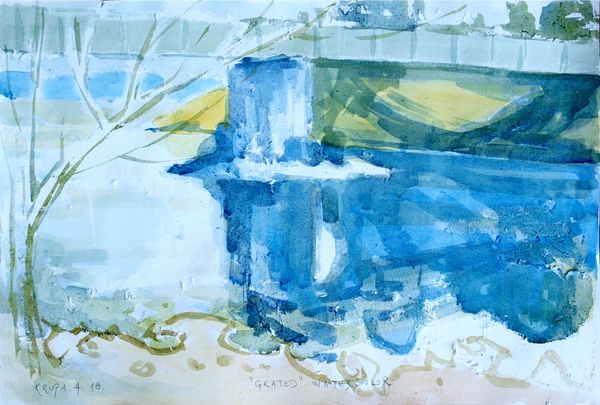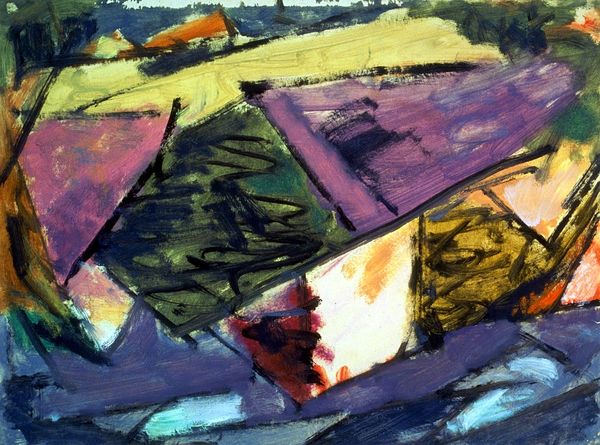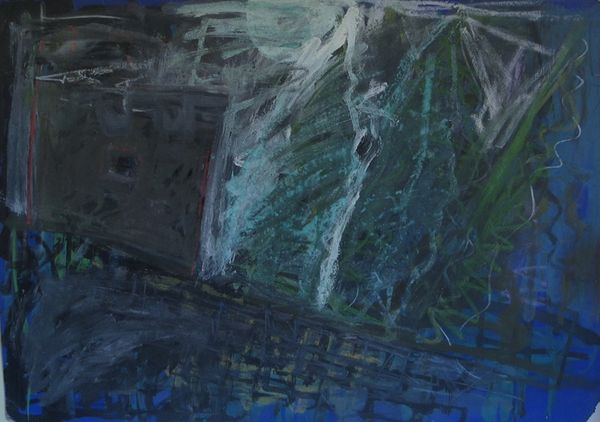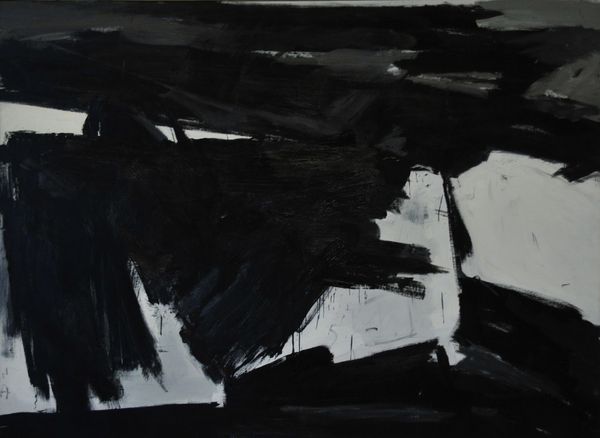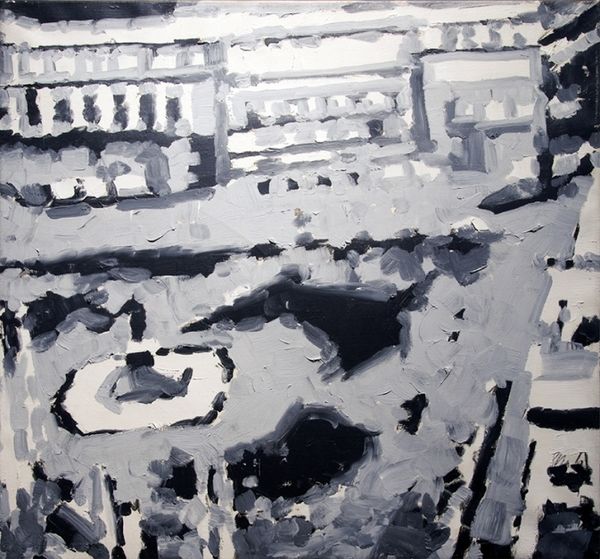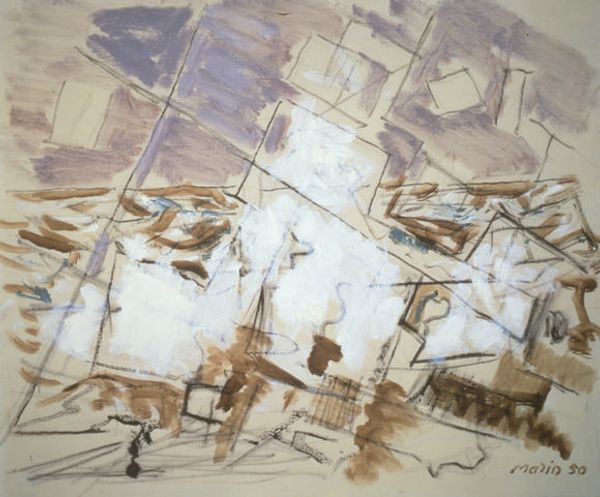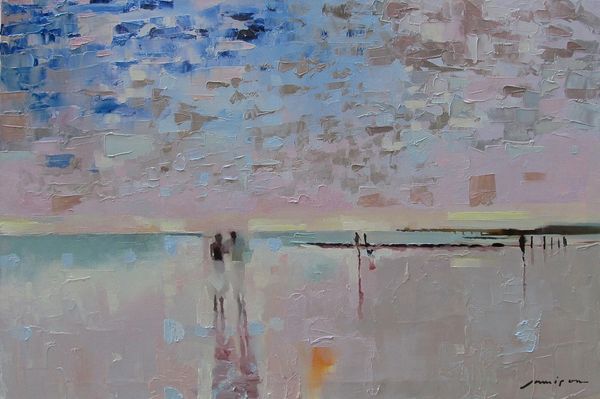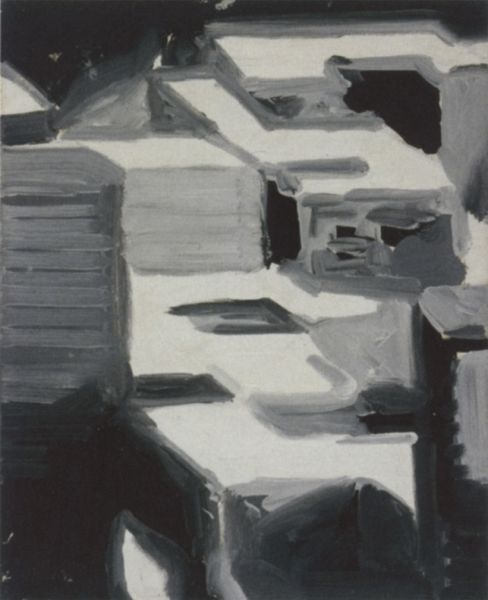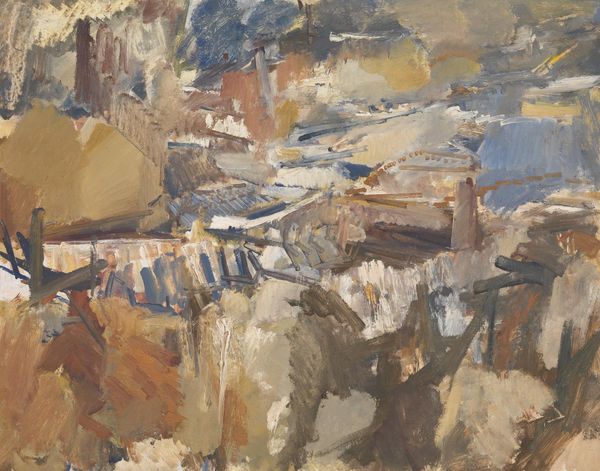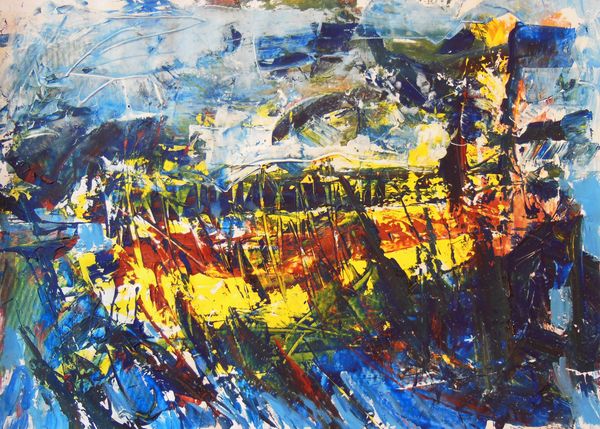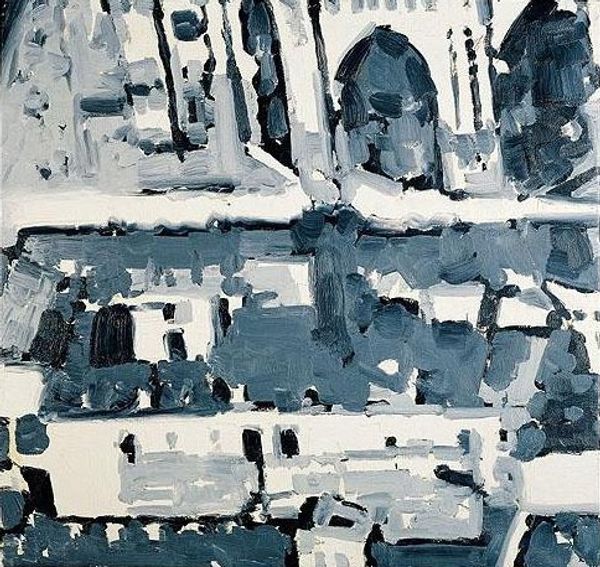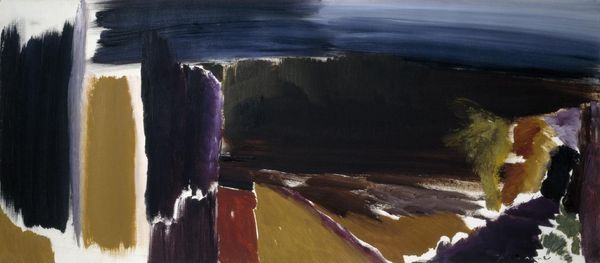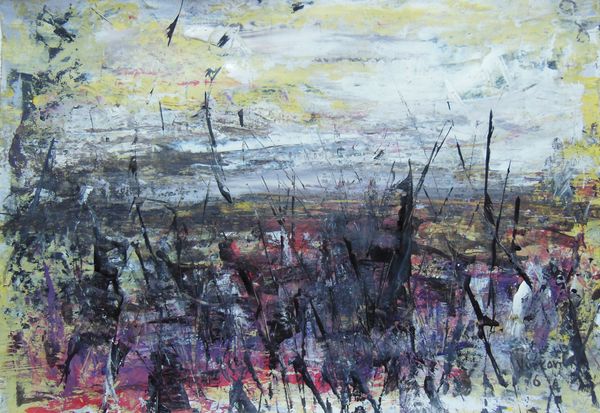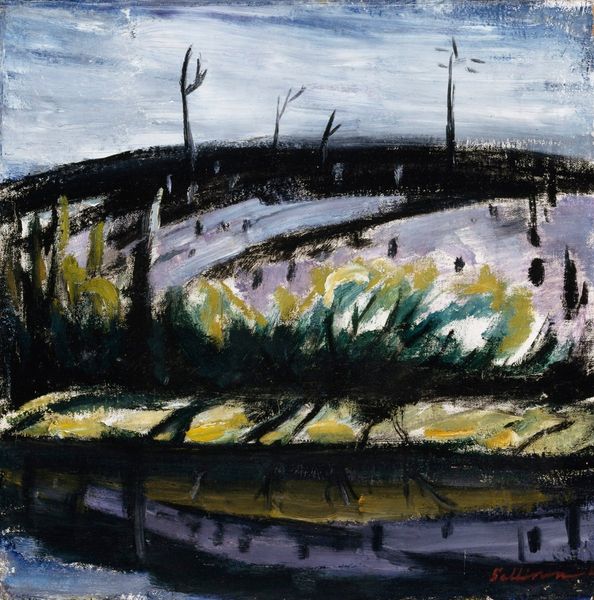
oil-paint
#
abstract-expressionism
#
abstract expressionism
#
oil-paint
#
landscape
#
oil painting
#
abstraction
Dimensions: 40 x 60 cm
Copyright: Rudolf Bér,Fair Use
Curator: Rudolf Bér, an artist of significant presence but whose exhibition history could perhaps benefit from greater institutional visibility, painted "Evening". It's oil on canvas. Editor: Visually, it feels… submerged. The monochromatic blue palette lends a heavy, dreamlike quality. Is that a landscape? The forms seem almost architectural, like underwater ruins. Curator: It is a landscape, distilled through the lens of abstract expressionism. Bér clearly engaged with the formal innovations of his contemporaries but wasn't merely imitating them. Think about the mid-century context, when the dominance of American abstract expressionism prompted artists globally to grapple with questions of national and individual identity through abstraction. Editor: That's precisely what draws me in. It speaks to a negotiation with a dominant aesthetic. The pervasive blue, rather than conveying peace, feels weighty, almost oppressive. It makes me think about climate grief, of places being swallowed. Is that anachronistic? Curator: Perhaps, but that emotional resonance speaks to the painting's continued relevance. Abstraction often transcends specific historical readings, acquiring new meanings in dialogue with subsequent generations and sociopolitical landscapes. There’s also a rawness in the paint application, it pushes the traditional genre conventions of landscape into abstraction in ways that prompt complex discussions of political, ecological, and personal impacts and changes over time. Editor: Definitely. The title "Evening," it is an invocation of the natural world but then the shapes become less trees, and more oppressive monoliths. It reflects on the history, while simultaneously using the artistic language of abstraction. This painting almost predicts what late stage capitalism can potentially make of any evening. It speaks to anxieties we collectively carry about landscapes changing, and that dialogue should never be considered outside a political landscape. Curator: Precisely, an abstraction’s power is, it is not confined by historical circumstances of production. Bér's painting gains depth when viewed through a contemporary lens, allowing us to grapple with the anxieties and premonitions embedded within its composition. Editor: The conversation certainly broadened, which I think is the purpose of art. Thank you for discussing "Evening" with me. Curator: It's always enlightening to engage in such discussions. Thank you.
Comments
No comments
Be the first to comment and join the conversation on the ultimate creative platform.
